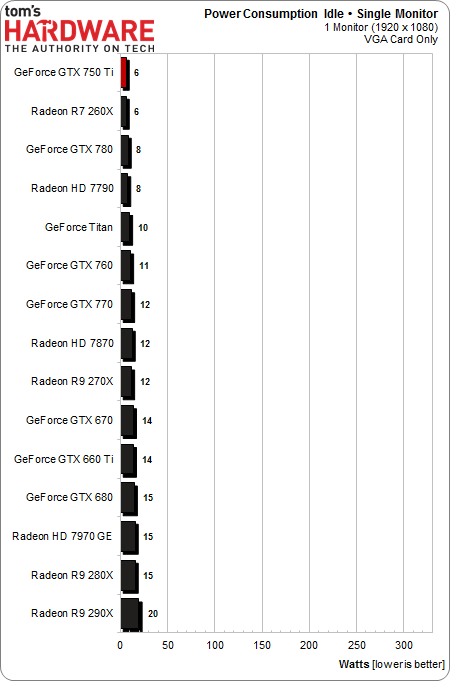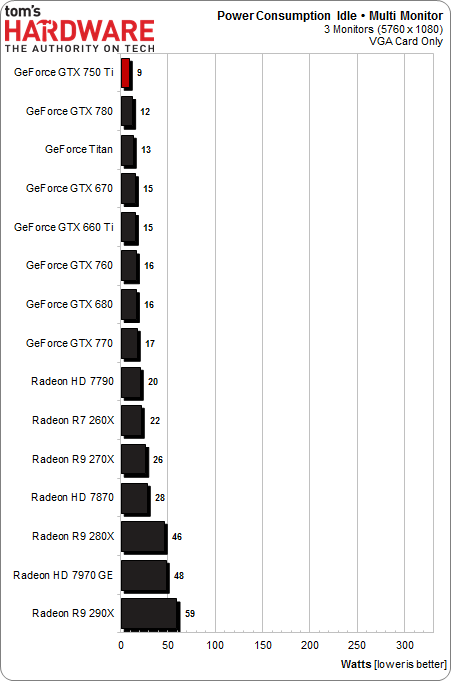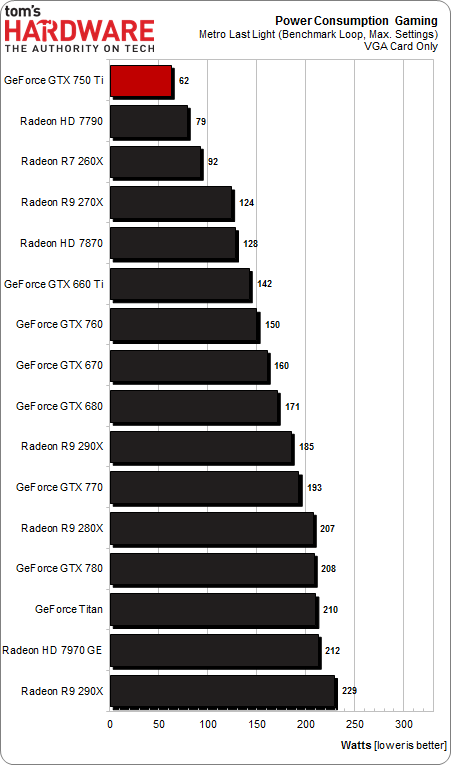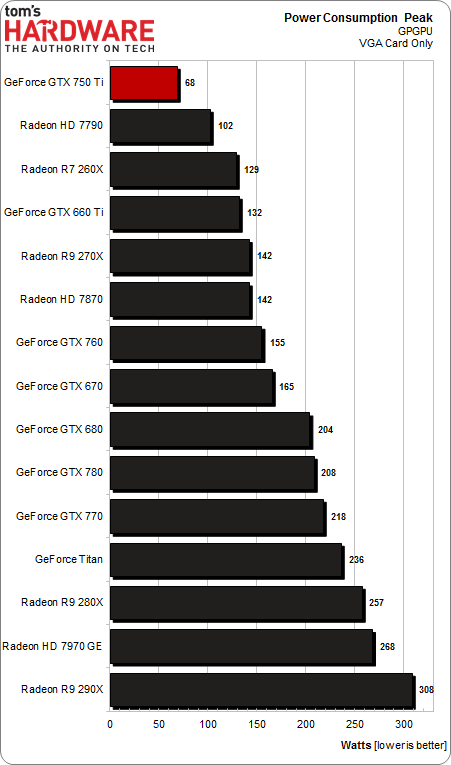GeForce GTX 750 Ti Review: Maxwell Adds Performance Using Less Power
Power Consumption: Idle, Compute, And More
Next to its competition, the GeForce GTX 750 Ti earns our respect when it comes to evaluating power consumption.
By the way, those two watts we shaved off on this page in the gaming measurement are the result of different benchmark settings. While we typically use the most demanding settings possible for better comparability in this overview, we stepped back to quality settings that allow playable frame rates. Interestingly, power consumption turns out to be a little higher under those conditions.
Taking each of these measurements into account, we have to congratulate Nvidia for its enormous efficiency improvement. The GeForce GTX 750 Ti indeed gets along without an additional PCIe power connector even under extreme load.
But it's probable that the 750 Ti operates close to the GM107's sweet spot. If true, efficiency would suffer in the face of significant overclocking, closing the PCI Express slot's slight headroom. The fact that some of Nvidia's board partners are adding six-pin power connectors suggests more serious overclocks stand to benefit from extra juice.
Get Tom's Hardware's best news and in-depth reviews, straight to your inbox.
Current page: Power Consumption: Idle, Compute, And More
Prev Page Power Consumption: Gaming Next Page Crazy Performance For A 60 W Card-
meluvcookies on performance, I'll take the extra frames of the 265, but damn, for 60w, I'm totally impressed by this card. both the 750Ti and the R7 265 would be decent upgrades from my aging GTX460.Reply -
s3anister ReplyBut without the big cooler, GTX 750 Ti is daintier than a lot of sound cards we've tested.
I'm pretty sure you meant to type "video cards" on page one there. Cheers. -
Bloob AlsoReplyIt’s difficult to make this story all about frame rates when we’re comparing a 60 W GPU to a 150 W processor
Is a bit confusing. -
cangelini Reply
Actually meant sound card :) It's definitely smaller than a small video card, but I even have sound cards here that are larger.But without the big cooler, GTX 750 Ti is daintier than a lot of sound cards we've tested.
I'm pretty sure you meant to type "video cards" on page one there. Cheers. -
Sangeet Khatri Well.. there is not a lot of performance in it, but I love it for a reason that it is a 60W card. I mean for 60W Nvidia has seriously nailed it. The only competition is way behind, the 7750 performs a lot less for similar wattage.Let's see how AMD replies to this because after the launch of 750Ti, the 7750 is no longer the best card for upgrading for people who have a 350W PSU.I don't generally say this, but Nvidia well done! Take a bow.Reply -
houldendub Nice little card, awesome! I feel like this would be an absolutely awesome test bed for a dual chip version, great performance with minimal power usage.Reply -
thdarkshadow The whole time I was reading the review I was like it isn't beating the 650ti boost... :( but then I remembered it uses less than half the power lol. I am impressed nvidia. While I make purchases more on performance than power consumption I can still appreciate what nvidia is doingReply -
houldendub Reply12707408 said:Anybody else notice the lesser shaders and TMUs on the Zotac card in GPU-Z?
Don't take this as fact, but the drivers look newer for the Zotac card than the others, possibly just a bug with the older drivers? The cards are advertised as having 640 shaders anyway.
Also weird, the GPU-Z screenshot is taken with Windows 8, whereas the Gigabyte and MSI cards are on Windows 7. The mystery continues...




